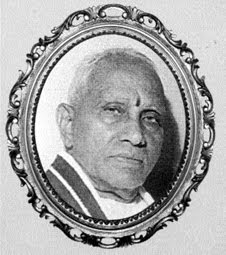One of the pioneers of modern Telugu literature Rayaprolu Subbarao. He is known as Abhinava Nannaya. He was inspired by the Western literary movement and brought romanticism into Telugu literature by breaking away from the traditional translations of Sanskrit literature. He introduced the concept of “Amalina Shringara Tatvamu” into Telugu literature. Subbarao’s literature is a mixture of Telugu Indian culture and Western ideas. He brought Western romanticism especially English lyric style to Telugu literature.
However, he followed classical Sanskrit and Telugu meter in his writings and he didn’t abandon Sanskrit Telugu form common language. His literature themes include sensual material, love of nature, patriotism, spirituality, humanitarianism and social reforms. Sensuality, in general, may be divided into two kinds, union and separation. Rayaprolu preferred separation in his writings. In his first independent poem, Trunakankanamu, Rayaprolu narrates love pangs of separation. The hero’s lover marries another man and he remains unmarried to suffer from the memories. By the end of the poem, hero’s love transforms into a platonic love and friendship. In this poem, Rayaprolu’s heroin continues a platonic relationship with the hero while married to another man. In Kastakamala, Kamala loves (platonic) two men. However, when one of them writes a love letter, she commits suicide. Rayaprolu was a great patriot and Telugu nationalist. He praised the (past) greatness of Telugu warriors to awaken the sleeping Telugu pride. Rayaprolu Subbarao defined Telugu romanticism and began a new era in Telugu literature. His romantic literature is considered as the watershed in Telugu literature for its modernity of themes such as naturalism, rural life, platonic love, a sense of history, libertarianism, patriotism, and fierce nationalism.
